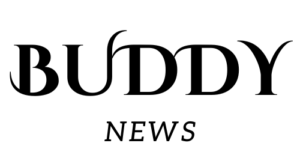Brazilian fashion model Amanda Momente defies fashion industry stereotypes by wearing her own label she designed after not finding alternatives that fitted.
Momente is part of an increasing movement among activists, entrepreneurs and models who feel disenfranchised with clothing that fails to meet their needs and makes them feel ashamed about their bodies.
“Society judged me on one factor that I didn’t like; so I took that factor and used it… to start my own business,” recalls 34-year-old Momente as she wears the bodysuit designed by Wondersize, her company she established in 2017.
Former real estate agent with pink locks and multiple tattoos came up with this plan after becoming uncomfortable while exercising in clothing that she claimed to be too tight and turned transparent when stretched or bunched up around her legs.
She decided to hire an experienced seamstress to assist in designing her workout wear, which went so smoothly that she decided to ditch her job and explore fashion industry full time, she says.
Brazilians with large bodies have increasingly taken to wearing bright, trendy clothing in response to global shifts that disprove unrealistic beauty standards and expectations for women, specifically.
“Fashion must accommodate our bodies rather than force our bodies into its mold,” claims Momente.

Identity and Dignity for Plus Size Women” Although many brands dedicate a portion of their collections to clothing in larger sizes, this often results in limited supply meeting “repressed demand”, according to Marcela Liz, president of Brazil Plus Size Association.
Brazil’s plus-size industry experienced impressive growth of 75% during the decade ending 2021 and achieved sales of 9.6 billion Brazilian reais (approximately $1.9 Million USD). An industry association reported this figure.
Sales for the company are projected to surpass 15 billion reais by 2027 – Latin America having one of the world’s largest economies at this time.
“Supply has increased, yet we are unable to meet customers’ demands,” states Liz. A new industry took to Sao Paulo this month at Pop Plus fair where indie designers showcased beautiful skirts, daring tops, T-shirts with striking slogans and apparel designed for sizes up to 70 women.
“The market viewed obese individuals as those who lacked fashion sense and wanted to cover up,” notes Flavia Durante, the activist who initiated this fair in 2012.
“My clothes were never the latest fashions,” she told AFP. “Fashion isn’t about consumption alone; it’s also about dignity and identity.”

Letticia Munniz is an accomplished TV host and fashion model who has graced Sao Paulo Fashion Week runways, graced glossy magazine covers and featured as an endorser in various advertising campaigns. She now brings this talent into TV hosting as a TV host/model/hostess/model for shows like Dancing with the Stars Brazil as well as numerous advertising campaigns around Brazil.
She believes that real inclusion for those who are overweight or obese remains far off in Brazil – where these populations account for 57% and 23% respectively of population and 23 % respectively in a nation of 203 million people.
“Things have improved, yet our work is seen as filling quotas rather than as genuine equality work” according to her statement.
Influencer and activist, wearing custom-made clothing often, She says she’s delighted that plus-size models are on runways more, however this does not indicate their availability in shops.
She encourages her over one million social media followers to be content in themselves as individuals.
“Finding clothing that accentuates your body rather than hiding it can change everything,” according to one blog post by an AFP contributor. (AFP).

